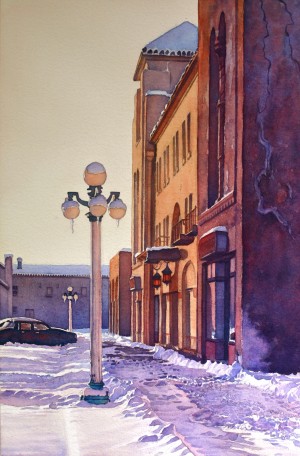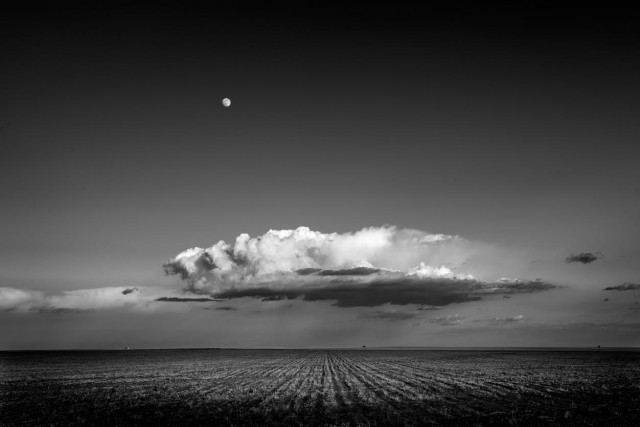Visit The Nic now — and again in January when new exhibits go up
Featured News | October 26, 2015
Eric Wimmer at the Nicolaysen Art Museum in Casper sent along a reminder of the museum’s current exhibits and those opening in January. In case you are new to Wyoming, the Nic, as it’s called by its pals all around the West, is a terrific arts venue and well worth a visit next time you’re in Casper for work or play. WAC staffer Mike Shay attended the Shawn Rivett opening in September and sang its praises. He viewed Michael Olson’s work and other exhibits. He also made the obligatory stop in the gift shop. The WAC is proud of its long-time support of The Nic. It’s located at 400 E. Collins in downtown Casper and is open every day but Monday. Web site: http://www.thenic.org. Facebook page: https://www.facebook.com/thenicmuseum
Here’s info about the exhibits:
Shawn Rivett: No Trespassing
Through Dec. 27, 2015
McMurry Gallery
Shawn Rivett is a Wyoming-based, large-format artist, whose western contemporary works convey a different view on the rustic lifestyle of Wyoming. Rivett’s current collection of works displayed in No Trespassing showcases a modern twist on Wyoming Life. The twenty nine foot antler piece, along with large format photography, represents the vast scale that is Wyoming. Shawn Rivett’s No Trespassing will take you to parts of Wyoming you have never seen. It’s a glimpse into the foundation of what makes Wyoming special.

“Parco Winter Lights,” watercolor, 21 inches by 14 inches, Joel R. Johnson
Joel R. Johnson: Town and Country
Through Jan. 17, 2016
Mary Durham/Bordewick Galleries
Joel Johnsons’ work is a reflection of his childhood growing up in the refinery town of Sinclair, in southeastern Wyoming. He was visually exposed to the Spanish Colonial style of architecture of its hotel, church, library, and central plaza with fountain. These were later to influence his paintings of southwest imagery, particularly the missions of New Mexico and Arizona. This interest continued on into Italy and paintings of Venice and other country towns. The area landscape around Sinclair including the Platte River, the Snowy Range and Elk Mountain areas, notably in the fall and winter, became subjects for many of his paintings including his more mature current work. The clear light of Wyoming has played an integral part of the design, mood, and a sense of place the artist has sought to convey through his paintings.
Michael Olson: Kindergarten to College
Through Jan. 17, 2016
Ptasynski Gallery
“This work expresses something felt but inexplicable. The creative process grants the time to search for meaning and fulfills a curious need to occupy the days and mind. This history is recorded in the plastic memory of the clay.
The objects derive from ancient and primitive artifacts, tools, ritualistic objects and weapons. They reflect a solemn and elegant quality, a timeless mysticism and awe that certain rocks, bones and ruins share. Like the meditative process, they are both fragile and precious.
Chance, repetition, and reaction to occurrences inform the evolution of the work. Earth, water, air, fire, thought and time combine to create a simple but complex object. This is a magical paradox that entices the search further into the unknown.” – Michael Olson

“Moon Above Wheat Field,” photo by Chuck Kimmerle
Chuck Kimmerle: The Naked Landscape
Jan. 15-May 8, 2016
McMurry Gallery
Reception and artist talk: April 15, 6-8 pm
“The only true voyage of discovery . . . would be not to visit strange lands but to possess other eyes . . .” —Marcel Proust
“Between the distant vistas of loud, prismatic, neon-coated grandeur (and often inside them) lie the often bypassed landscapes of simplicity and subtlety. Quiet areas whose significance is spoken in soft whispers rather than self-aggrandizing shouts. These landscapes are straightforward and honest, stripped of any façade, and unapologetic in their reticent presentation. To paraphrase a certain spinach-eating sailor, they are what they are.
I find a great deal of significance in these areas. Their juxtapositions of organic and unnatural, large and small, light and dark, soft and sharp, offer a more realistic view of the western landscape than the common postcard photograph. In keeping with the aura of the landscape, I photograph primarily in black and white, and in a straightforward style no doubt influenced by my background as a photojournalist.” – Chuck Kimmerle
Patricia Aaron and Alicia McKim: From the Outside Looking In
Jan. 29-May 1, 2016
Ptasynski Gallery
Reception and artist talk: April 15, 6-8 pm
Looking to the north we Coloradans typically view Wyoming as a space filled predominately with sagebrush and cowboys. Outside of Yellowstone and the Grand Tetons most parts of Wyoming lay undiscovered to us. We are from the outside looking in with our own prejudices and myths. Patricia Aaron and Alicia McKim each through their own experiences, have come to see that this sparsely populated landscape imparts spacious skies and vast lands that extend to the horizon line, often times with brutal wind, bearing extreme temperatures. As artists they have found that this intense climate creates profound beauty in the everyday landscape, as it molds the people who inhabit this area. This collection of monoprints is their studio interpretations of the fragile and ever-changing landscape of Wyoming.
Candace Forrette: Meditation/Reflection
Jan. 29-May 1, 2016
Bordewick and Durham Galleries
Reception and artist talk: April 15, 6-8 pm
“This current body of work is informed by my feelings for and observations of the land.
I am interested in exploring smoke fired ceramics, and in the combining of natural materials – also of the earth and of fire, notably copper and muscovite (mica).
The somewhat minimal, yet made-by-hand qualities of the work reflect my feelings about the landscape and about our place within it. This use of minimal form and the repetition of elements allows for a space for meditation, reflection and belonging.
Over the years, I have worked with a variety of media. I am interested in using whatever materials I need to express what I want to “talk about” and so, have been lead to employ many different materials and methods. For me, art is very much about process. The best pieces are a result of working with my ideas while “listening” to what the materials suggest. I like the idea of working between having control and giving up control. This is one reason the smoke and woodfire processes intrigue me. I can coax the results, but in the end, the firing presents me with something of its own – something I didn’t expect, but really like – or- something not quite right, which requires me to continue with the process.
Like many of those who make their home in the West, the natural world sustains me. Its contemplation often becomes a form of prayer.” – Candace Forette
- Select
- December 2024
- November 2024
- October 2024
- September 2024
- August 2024
- July 2024
- June 2024
- May 2024
- April 2024
- March 2024
- February 2024
- January 2024
- December 2023
- November 2023
- October 2023
- September 2023
- August 2023
- July 2023
- June 2023
- May 2023
- March 2023
- February 2023
- January 2023
- November 2022
- October 2022
- September 2022
- August 2022
- July 2022
- June 2022
- May 2022
- April 2022
- March 2022
- February 2022
- January 2022
- December 2021
- November 2021
- October 2021
- September 2021
- August 2021
- July 2021
- June 2021
- May 2021
- April 2021
- March 2021
- February 2021
- January 2021
- December 2020
- November 2020
- October 2020
- September 2020
- August 2020
- July 2020
- June 2020
- May 2020
- April 2020
- March 2020
- February 2020
- January 2020
- December 2019
- November 2019
- October 2019
- September 2019
- August 2019
- July 2019
- June 2019
- May 2019
- April 2019
- March 2019
- February 2019
- January 2019
- December 2018
- November 2018
- October 2018
- September 2018
- July 2018
- June 2018
- May 2018
- April 2018
- March 2018
- February 2018
- January 2018
- December 2017
- November 2017
- October 2017
- September 2017
- August 2017
- July 2017
- June 2017
- May 2017
- April 2017
- March 2017
- February 2017
- January 2017
- December 2016
- October 2016
- September 2016
- August 2016
- July 2016
- June 2016
- May 2016
- January 2016
- December 2015
- November 2015
- October 2015
- September 2015
- August 2015
- July 2015
- June 2015
- May 2015
- April 2015
- March 2015
- February 2015
- January 2015
- December 2014
- November 2014
- October 2014
- September 2014
- August 2014
- July 2014
- June 2014
- May 2014
- April 2014
- March 2014
- February 2014
- January 2014
- December 2013
- November 2013
- October 2013
- September 2013
- August 2013
- July 2013
- June 2013
- May 2013
- April 2013
- March 2013
- February 2013
- January 2013
- September 2012
- August 2012
- July 2012
- June 2012
- May 2012
- April 2012
- March 2012
- February 2012
- January 2012
- December 2011
- November 2011
- October 2011
- September 2011
- August 2011
- July 2011
- June 2011
- May 2011
- April 2011
- March 2011
- February 2011
- January 2011
- December 2010
- November 2010
- October 2010
- September 2010
- August 2010
- July 2010
- June 2010
- May 2010
- April 2010
- March 2010
- February 2010
- January 2010
- December 2009
- November 2009
- October 2009
- September 2009
- August 2009
- July 2009
- June 2009
- May 2009
- April 2009
- March 2009
- February 2009
- January 2009
- December 2008
- November 2008
- October 2008
- September 2008
- August 2008
- July 2008
- June 2008
- May 2008
- April 2008
- March 2008
- February 2008
- January 2008
- December 2007
- November 2007
- October 2007
- September 2007
- August 2007
- July 2007
- June 2007
- May 2007
- April 2007
- March 2007
